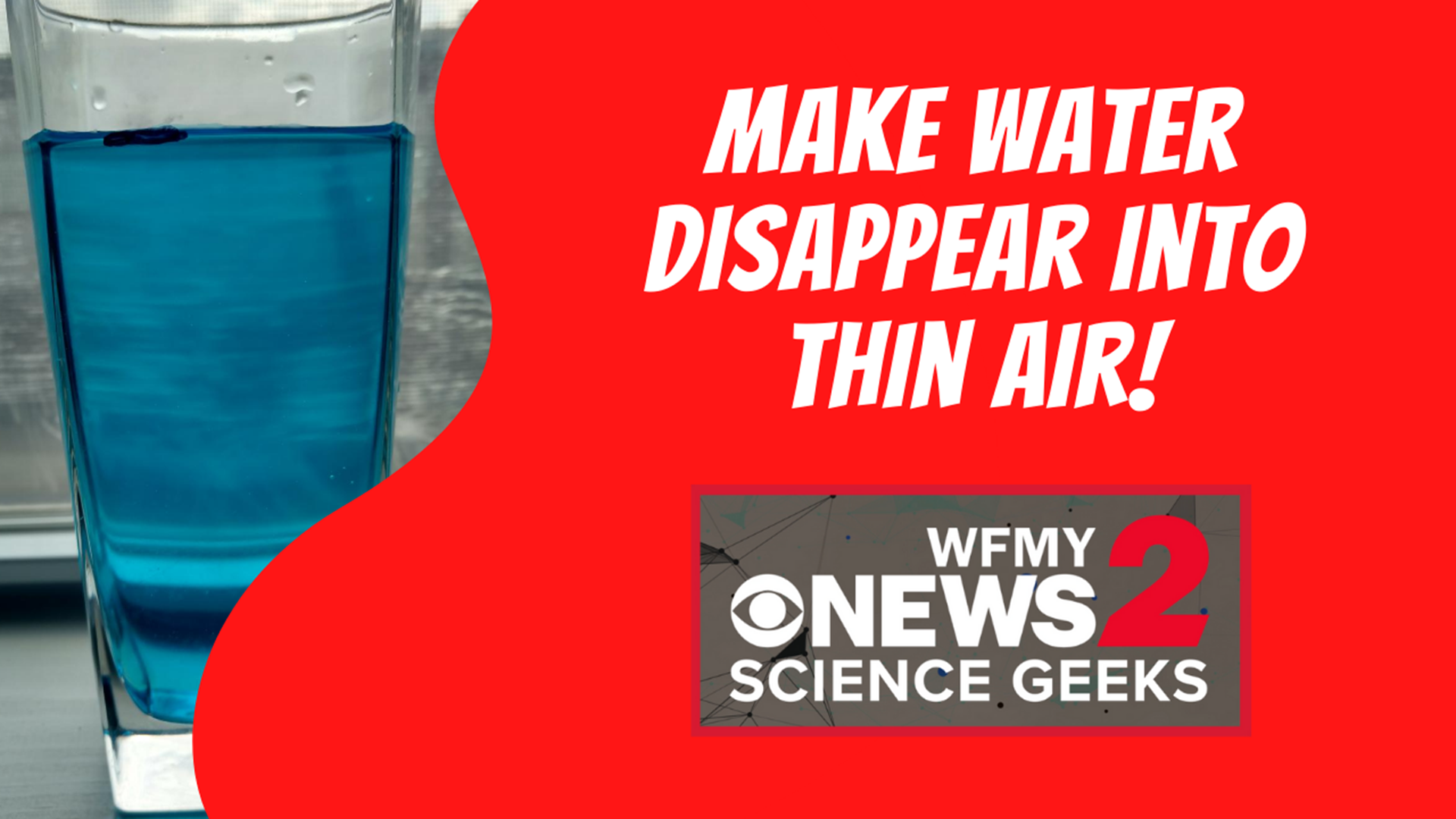GREENSBORO, N.C. — Welcome back to News 2 Science Geeks! It's a fun segment that gives you some easy-to-do science experiments during this period of staying at home. Have fun, and let us know if you try this one out.
This week we're going to make water disappear into thin air by the process of evaporation. We will change water into a gas or water vapor.
WHAT YOU'LL NEED
- One glass of water
- Add food coloring to water (any color)
- Black marker
FOLLOW THESE STEPS:
- Fill glass 3/4 full with water
- Mark water level on glass.
- Place glass in window (direct sunlight)
- Leave in window for a week or two
- Mark water level about every other day
WHY DID IT WORK?
When water comes in contact with the air, evaporation will always take place and liquid water will become a gas. As you observe the glass of water about every other day, you'll notice the water level getting lower as water evaporates out of the glass. Where does the water go? It floats into the air as a gas or water vapor You can't see it, but it is there. If the glass were left in the window long enough, all of the water would evaporate out.
There are many examples of evaporation. You can wipe a table with a wet cloth and the table will dry in a matter of minutes. Even the cloth will become dry after a period of time. Before clothes dryers, mom took full advantage of evaporation to dry clothes on a line outside. Wash a car or your bike, and it will soon dry. In nature, water evaporates out of lakes, ponds, rivers, and the ocean. As a matter of fact, the oceans of the world are a huge source of evaporation as the surface of the earth is 78% water. Water from the oceans evaporates into water vapor, lifts into the upper atmosphere and forms clouds that brig beneficial rain all over the world.
We hope you enjoy doing this really cool experiment.

